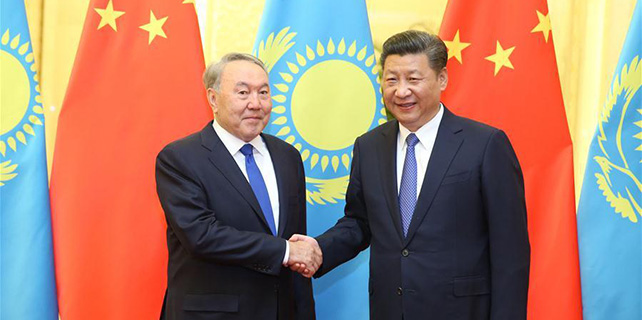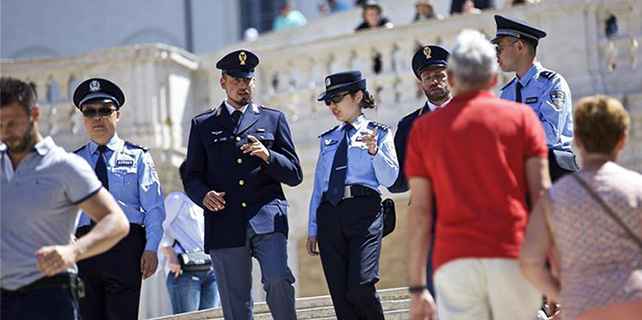Trump takes sides in Arab rift, suggests support for isolation of Qatar
 |
|
A man buys water at a shop in Doha, on June 5, 2017. [Photo/VCG] |
MEDIATION AND CONSEQUENCES
White House spokesman Sean Spicer said the United States is communicating with all the parties in the Middle East "to resolve issues and restore cooperation" over the Qatar dispute.
"The US still wants to see this issue de-escalated and resolved immediately, in keeping with the principles that the president laid out in terms of defeating terror financing and extremism."
Kuwait's Emir Sheikh Sabah Al-Ahmad Al-Jaber al-Sabah flew to Saudi Arabia for talks with King Salman bin Abdulaziz, Saudi and Kuwaiti state media reported, but gave no details on the discussions.
Russian President Vladimir Putin told Qatar's emir, Sheikh Tamim bin Hamad al-Thani, in a phone call that crisis situations should be solved by political and diplomatic means, "in dialogue", the Kremlin said.
The rift has affected global oil prices, hit travel plans and sown confusion among businesses.
Saudi Arabia's central bank advised banks in the kingdom not to trade with Qatari banks in Qatari riyals, banking sources said.
Oil prices fell on concern that the rift would undermine efforts by OPEC to tighten output.
Foreign Minister Sheikh Mohammed bin Abdulrahman al-Thani told Qatar-based Al Jazeera TV that Qatar would not retaliate, hoping Kuwait would help resolve the dispute.
"We are willing to sit and talk," he told CNN later, and said his country was "protecting the world from potential terrorists".
A Qatari official said the rift was pushing Doha in the direction of leaving the six-state Gulf Cooperation Council, "with deep regret".
















